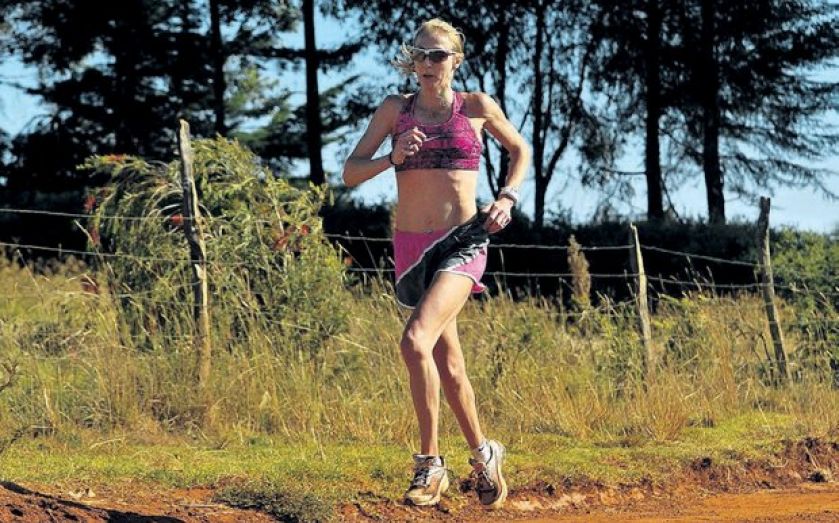Radcliffe aims to finish on her terms

Marathon icon tells Frank Dalleres why a sparkling career must end in London
IT WAS meant to be a glorious homecoming, the crowning achievement of one of Britain’s greatest ever athletes at the scene of her breakthrough triumph. Instead the London 2012 Olympic Games became a nightmare for Paula Radcliffe, as injury not only denied her a starring role in this generation’s 1966 moment but also threatened what she cherishes most: the simple joy of running. Little wonder she harbours a sense of unfinished business.
Two years on, Radcliffe is just grateful to be able to train again. It was fully 10 months after complex surgery to regrow cartilage in her left foot in July 2012 that she was able to manage even a jog, fuelling her gravest fear: that she would not even be able to go running with her children. Typically, though, she refused to contemplate retirement and, aged 40, is on the comeback trail, with the intention of making her competitive farewell at April’s London Marathon, the race where she set her enduring world record in 2003.
“I accept that most people’s careers end because of injury – that’s the way it goes – but because I got so close to being able to run in London at the Olympics and then not being able to, I feel that’s where it would be nice to finish on my terms,” she told City A.M.
Radcliffe has not completed a marathon since 2011 and has spent the last year gradually rebuilding running capacity through training and shorter races, such as next week’s 5km Standard Chartered Great City Race in the Square Mile. Right now, the greatest threat to her foot’s recovery may be striking a balance between competitive appetite and necessary caution.
“I’m just at that stage when I’m trying to persuade it that it’s fine to run faster,” she said. “I think you appreciate it more, and you don’t want to do anything to jeopardise it, so I’ve been getting much better at listening to my body and seeing what it’s able to do. But at the same time it’s exciting to be able to push harder and see how fast I can run on it.”
REGRETS
A shot at the New York Marathon – a race that, like its London counterpart, she has won three times – will come too soon in her rehabilitation. She is also sure that London will represent a full stop to an extraordinary career. Olympic finals in Athens and Beijing proved high-profile and painful disappointments, but are outweighed by gold medals at World and European Championships. Radcliffe hesitates before agreeing she is satisfied.
“Yeah I think so. There are always things where you think ‘well I should have run better there’ – certainly the Olympics for me – but on the other hand there were lots of things that did work out, and I’m not a big believer in regrets,” she added. “It’s only now at the end of your career that you look back and realise what you did.”
Most satisfying of all must be that marathon world record of two hours, 15 minutes and 25 seconds, which remains untouched 11 years on. “Yeah, and at the same time I’d like it to keep standing a little bit longer,” she grins.
Post-retirement, she has wide-ranging plans to remain a positive influence on the sport, from mentoring athletes to dipping into its politics, marketing and anti-doping, a cause she has supported vocally. First, though, there is the matter of planning her swansong.
“I’m realistic about it,” she said. “I know at this stage, at 40, I’m not going to be able to come back and run 2:15. It’s also seeing what my foot can do as well as just fitness – that’s what I don’t know.
“This is the last competitive race, but I’m still going to run and do a lot of runs like the Standard Chartered Great City Race. Because London was my first marathon it would be nice to come full circle.”
The Standard Chartered Great City Race is on 10 July starting at 7:15pm at the HAC Ground. All funds raised will go to Seeing is Believing. For information visit cityrace.co.uk
PAULA ON…
SAVING ATHLETICS
We have got falling TV viewing figures, track and field probably isn’t where it was 15-20 years ago. I think we need fresh impetus and fresh organisation to move in the right direction.
STAGING ATHLETICS IN QATAR
The Olympics is different because there are so many other sports in that, but certainly for athletics world championships I think we should be making sure that they go to track and field nations.
ANTI-DOPING
It’s very important athletes are able to prove their performances are clean, and that they are on a level playing field. Now I think we need to make the length of the bans and the deterrents stronger.
JAMAICA’S SPATE OF DOPING OFFENCES
They have to have a compliant anti-doping laboratory when they have athletes who are the best in the world. Those athletes have to be protected. Not just Jamaica – Kenya, Ethiopia, wherever.
MO FARAH’S MARATHON DEBUT
I think he did well. He had a huge amount of pressure on him, people expected a lot because he is the best in the world right now over 5,000m and 10,000m. He absolutely can come back and run faster.
